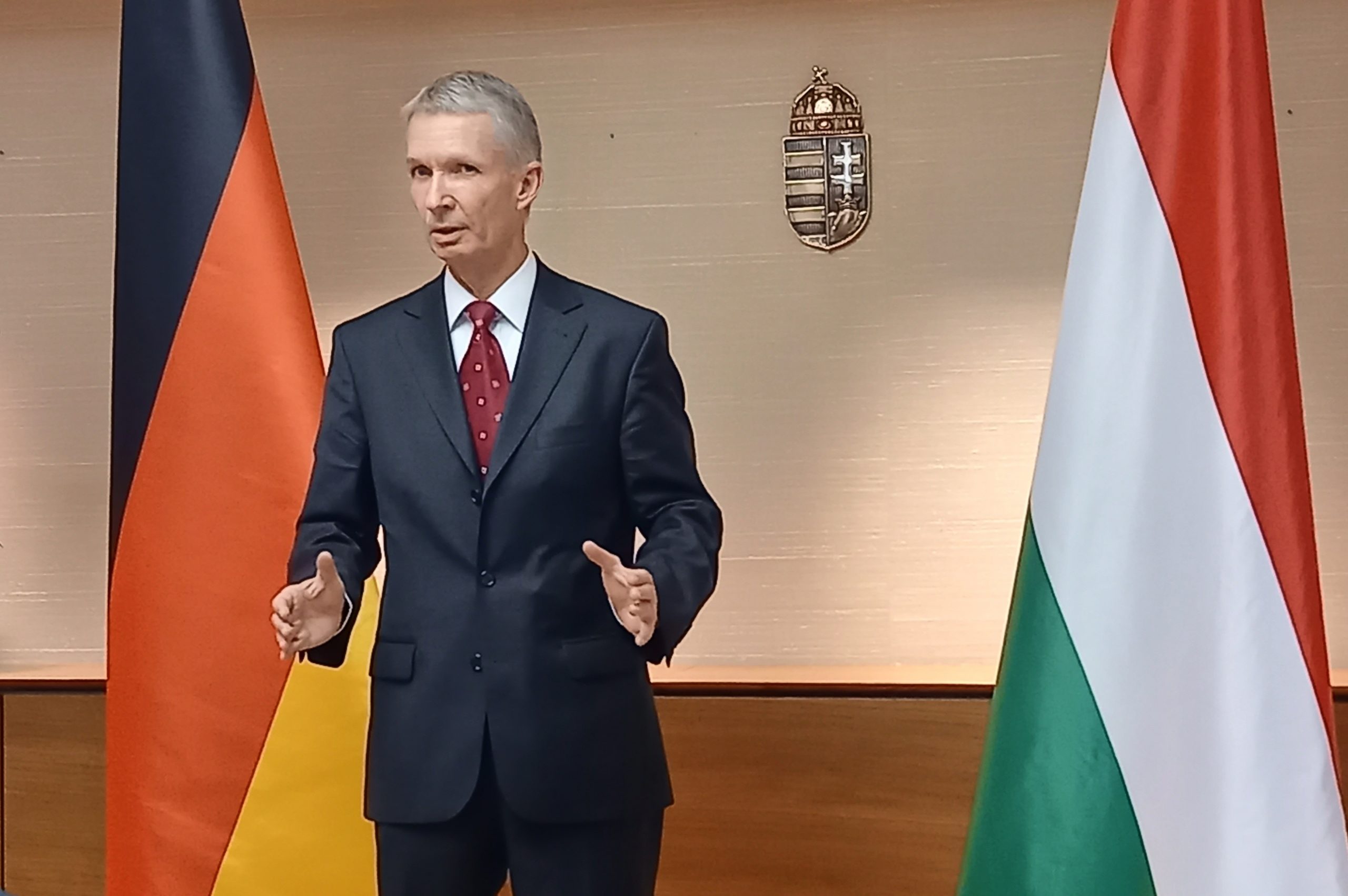
"Hungary is becoming a place of longing for a world that is being lost in Western Europe, including Germany."Continue reading

Dr. Gerhard Papke is a politician from the German FDP party, and since 2019 he has been the president of the German-Hungarian Society, which has its headquarters in Berlin and Bonn. We have asked Dr. Papke about his thoughts concerning the direction of German-Hungarian relations, and what progress, if any, has been made in the past year since we have last spoke about the topic.
Since we last met in July 2023, not much has happened in German-Hungarian bilateral relations on the political plane. Some would say it is an achievement in itself that they did not get worse considering the unbridgeable gap between the values of the current traffic light coalition in Berlin and the Orbán government. Do you see this as the best we can have in the current set up, or have we missed chances to make things better in the recent past?
I am following very closely how much the Hungarian government, but also Hungary’s diplomatic missions in Germany, are trying to improve German-Hungarian relations. The problems are not their fault. The left-green federal government and its friendly media in Germany see Hungarian policy as a threat to their own ideological hegemony. The Hungarian policy of national self-determination, with the classic family of mother, father and children at the center, based on the Christian-Western values of Europe, is a danger for the assembled political left in Germany. Hungary is a beacon. Many Germans look there and ask themselves why such a policy should not also be possible in Germany. In all the polls, the parties in the “traffic light” government only have a third of the vote. Hungarian politics is being defamed all the more harshly, especially ahead of the important EU elections in June.
Is the German political campaign against Hungary increasing on intensity?
Unfortunately, yes. When violent left-wing extremists smashed all the windows of the Hungarian Cultural Institute in the middle of Berlin at the beginning of the year, you could hardly read anything about it in the German media. Incidentally, these criminals also threatened the German-Hungarian Society (DUG) and myself because I had invited Chancellery Minister Gergely Gulyás to an event in Berlin and represented pro-Hungarian positions. When I speak out in Germany on completely different domestic policy issues, the media often mention that I am a defender of Hungarian government policy – clearly with the intention of depicting me as a supporter of an allegedly undemocratic policy. Or look at the euphoria with which the German mainstream media report on the Hungarian opposition’s new darling, Péter Magyar: You will rarely hear in Germany that he recorded a conversation with his then wife, former justice minister Judit Varga, under dubious circumstances and used it for his public campaign. Nor that Judit Varga accused him of serious domestic violence. Anyone who comes out against Orbán is a potential beacon of hope for the German left, no matter who he really is.

Photo: Wikipedia
Some consider the current German leadership as the logical consequence of Merkel’s legacy. But neither seem the CDU and CSU, the largest opposition forces, be able to break with Merkelian thinking, something that is making their ship list strongly to the left. Where should a Hungarian start looking for potential political allies among their historic friends?
Helmut Kohl, the CDU chairman and great chancellor of German reunification, considered himself a fatherly friend of Viktor Orbán. Orbán was a welcome guest of honor and discussion partner for the CSU in Bavaria for many years. Today, both parties give Hungary a wide berth because they have in fact moved further and further to the left and want a government alliance with the SPD or the Greens after the next election. But the rise of the AfD shows that more and more Germans are turning away from the left-wing course of the established parties. Three important state elections will be held in East Germany in September. If the CDU prefers to work with the Greens and communists rather than the AfD, it will lose even more voters. This may also be an opportunity for the Werteunion (Union of Values), Hans-Georg Maaßen’s new party. The German party system is currently in a state of flux like never before. Even experts in German politics find it difficult to predict what it will look like in two years’ time.
From a Hungarian perspective, it is therefore better to wait and see and carefully examine who could prove to be a reliable partner in this process of change in the German parties.
Despite the dissimilarities on the German political landscape, it is hard not to spot certain emphases and arguments being mirrored from the Hungarian discourse. Is this a coincidence?
We are facing a similar, fundamental choice of direction in all countries of the European Union: Do we want to defend the classic values of Europe, our way of life, or do we surrender to uncontrolled mass migration and progressive Islamization? In Germany, a survey of Muslim schoolchildren in the federal state of Lower Saxony has just been published. Two thirds of them say: “The rules of the Koran are more important to me than the laws in Germany”. And almost half of them consider an Islamic theocracy to be the best form of government! This shows what threatens us in Europe if the left-green policy is not stopped.
How do you see the role of Brussels in this?
The firewall to protect Europe is essentially based on national self-determination: the great idea of European unity thrives on the voluntary cooperation of sovereign nations for the benefit of all, not on a super-state controlled by Brussels that forces migration from Africa and the Middle East on the citizens of the EU against their will. This important issue will be at stake in the EU elections in June.
The worrying scenes on European streets after the October 7 terror attacks in Israel seem to have vindicated the Hungarian model that warned since 2015 that religious fundamentalism, hate and antisemitism is being imported from the Middle East through illegal migration. Given Germany’s difficult past in relation to the Jewish community, how can your political elites still justify an uncritical approach to this issue?
Yes, it is just terrible that anti-Semites and Israel-haters can march through Germany again! I flew to Budapest on October 8, the day after the terrorist attack on Israel, and walked through the Jewish quarter there. Jewish citizens there were able to show themselves freely and safely on the streets as usual. When I returned to Berlin the following week, an arson attack had just been attempted on a Jewish synagogue there, even though it is guarded by the police around the clock.
The Germans are no more anti-Semites than the Hungarians, but we Germans import antisemitism every day with mass migration!
So where is antisemitism really being combated, in Germany or in Hungary? It is high time to discuss this question openly, especially in Germany!

The synagogue in Oldenburg, a victim of a recent arson attack. Photo: Wikipedia
How could Hungary make its voice be heard better in Germany, and how can it explain its position to Germans more effectively?
Viktor Orbán is better known in Germany than many federal ministers in the “traffic light” government. The Hungarian people have elected him prime minister four times in a row with an absolute majority. He should come to Germany more often to explain the convictions of Hungarians and his policies. And he should give more interviews in the German media. Many Germans are very interested in what he has to say.
Featured Image: Hungary Today